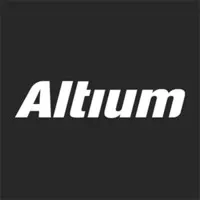Growth Marketing Manager
Ambient.aiFull Time
Mid-level (3 to 4 years)
Remote

Key technologies and capabilities for this role
Common questions about this position
Yes, the position is remote.
This information is not specified in the job description.
This information is not specified in the job description.
This information is not specified in the job description.
This information is not specified in the job description.

Software solutions for PCB design automation
Altium offers software solutions for designing printed circuit boards (PCBs) in the electronic design automation (EDA) industry. Its main product, Altium 365, enables real-time collaboration and effective data management for PCB design projects, ensuring high reliability across various regions. The company operates on a subscription-based model, providing different tiers of software and optional add-on services to meet diverse customer needs. Altium's goal is to facilitate efficient and collaborative PCB design for a wide range of industries.